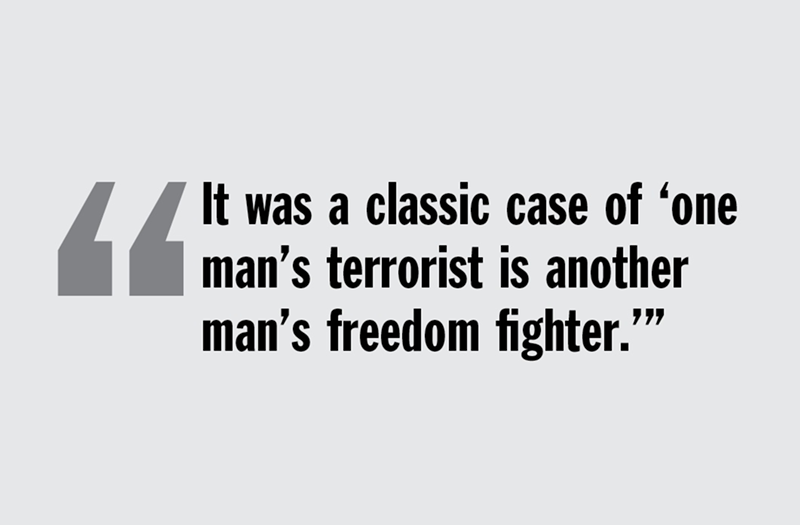It’s taken almost a month for the story of hundreds of kidnapped Nigerian school girls to gain a foothold in the American news media.
But with belated promises of aid by President Barack Obama and Secretary of State John Kerry, editors finally have images and content they can grasp: Obama and Kerry. In Washington.
Days later, Michelle Obama and Hillary Clinton joined the #BringBackOurGirls campaign, providing further easy images.
But I’m still puzzled by the tardiness of celebrities and politicians speaking out.
I’m not alone. Blogging in London’s liberal Independent, Mary Dejevsky wrote, “When the Western media first reported . . . that 200 girls had been abducted from their school, I was mildly surprised by the relative equanimity with which the news seemed to be received.
“It did not feature at the top of most news bulletins. It seemed to me then that 200 was really rather a lot of girls to be essentially taken captive in one go, and that rather more prominence for this undoubted atrocity was probably in order.
“Against that, you could imagine editors arguing in terms of news priorities, that this was Nigeria (not, say, Northampton or Norway); the excesses of Boko Haram, the Islamist extremist group presumed to be responsible, were long standing and well known; abductions of girls in this region — though not on this scale — were not unheard of. Perhaps there was also a feeling that no one, not even Boko Haram, would be able, in the end, to pull it off. The girls would soon be home where they belonged, and we could all forget about it.”
Meanwhile, American news media spent endless hours and column inches on Korean school girls who drowned in a sinking ferry.
The difference in coverage isn’t racial or ethnic. Rather, the failure of the Nigerian story is practical: TV often drives the news cycles.
TV may be a wasteland, but Americans say it’s our primary news source. TV needs images for the voracious 24/7 news cycle. Lots of them. No pictures, no story.
Meanwhile, without omnipresent screens telling editors what to think about, there’s no second guessing in other newsrooms.
At least for a day, Kerry and Obama provided an angle that Americans could grasp. So have Michelle and Hillary. Safe, familiar images, articulate American men and women speaking on behalf of the faceless, abducted girls an ocean away.
But consider the workaday aspects of how we report these two stories, both involving hundreds of teenage victims.
Journalists have no trouble covering the horrific sinking and family grieving in Korea. Almost everything and everyone is accessible. The waterfront is a perfect backdrop. Even the drowning of a diver becomes a story. Images. Lots of them.
Nigerian girls are invisible. No images. No easy story.
Most news media don’t go where the girls were taken by Boko Haram Islamist terrorists/rebels: poor, sparsely populated northeast Nigeria where kidnappers hope to create an Islamic state.
Travel is rough at best and Boko Haram executes foreign journalists. By now, kidnappers and girls probably are somewhere else. Boko Haram fighters aren’t stupid. They’re not waiting for CNN or American or British Special Forces.
Based on what a Boko Haram leader said in a video, he may have sold some girls as slaves across borders with neighboring Muslim countries or given them as wives to his fighters.
It wouldn’t be the first modern African terrorist group to do this. Joseph Kony in Uganda has enslaved thousands of women and remains at large.
Whatever their fate, the Nigerian Islamist group, whose name in Hausa can translate “Western education is sinful,” successfully ended the girls’ schooling.
Before the kidnapping, Boko Haram slaughtered Nigerian boarding school boys by the score. Western schooling interrupted. Again, no images. The story died after a couple news cycles.
While secular education might be a sin, selling girls into slavery is not in many of these cultures.
Let me add a personal note. One thing that hasn’t changed in black Africa since I lived and worked there in the early 1960s: Parents invest in education with a passion that most of us can’t imagine. Families will deprive themselves to pay fees for government schools.
An example: My cook earned a modest raise. I asked him what he planned to do with it. He said he’d probably spend it at the local beer hall. I offered instead to pay his oldest son’s school fees. He was ecstatic.
To lose sons and daughters at boarding schools is a human disaster, made worse by the economic loss of the family investment in an educated child.
Official Nigerian response is pathetic. Its army remains unwilling or unable to track the girls; again, no images, no story.
Terrorist bombings in the capital of Abuja got more coverage with far fewer victims. Weeks passed before Nigeria’s president convened a war council. Hardly riveting TV.
The irony is that among black Africa’s national military, Nigeria’s is one of the better forces. It participates in U.N. and other peacekeeping missions but it is utterly inadequate to suppress or defeat religious/ethnic/cultural rebellion in Nigeria’s Islamic northern states.
That’s a problem for the civilian federal and state governments in Africa’s most populous nation and its stark division between Christian and Muslim regions.
It doesn’t help that the army’s atrocities send young men into the Boko Haram ranks. The army further weakened the appeal of the story when the Nigerian government lied and lied about the kidnapping. First, it low-balled the numbers. Then it claimed most were freed. None were rescued.
Facts trickled out when girls who escaped the initial nighttime roundup told their story. Again, this was hotter on the Internet and in the international press than in our news media.
An exception to American editors’ willful blindness is NPR’s correspondent Ofeibea Quist-Arcton, who is stationed in West Africa. In American news media I read and hear, she owns this story. Being a radio reporter frees her from the tyranny of video; she relies on listeners’ imaginations.
CONTACT BEN L. KAUFMAN: [email protected]






